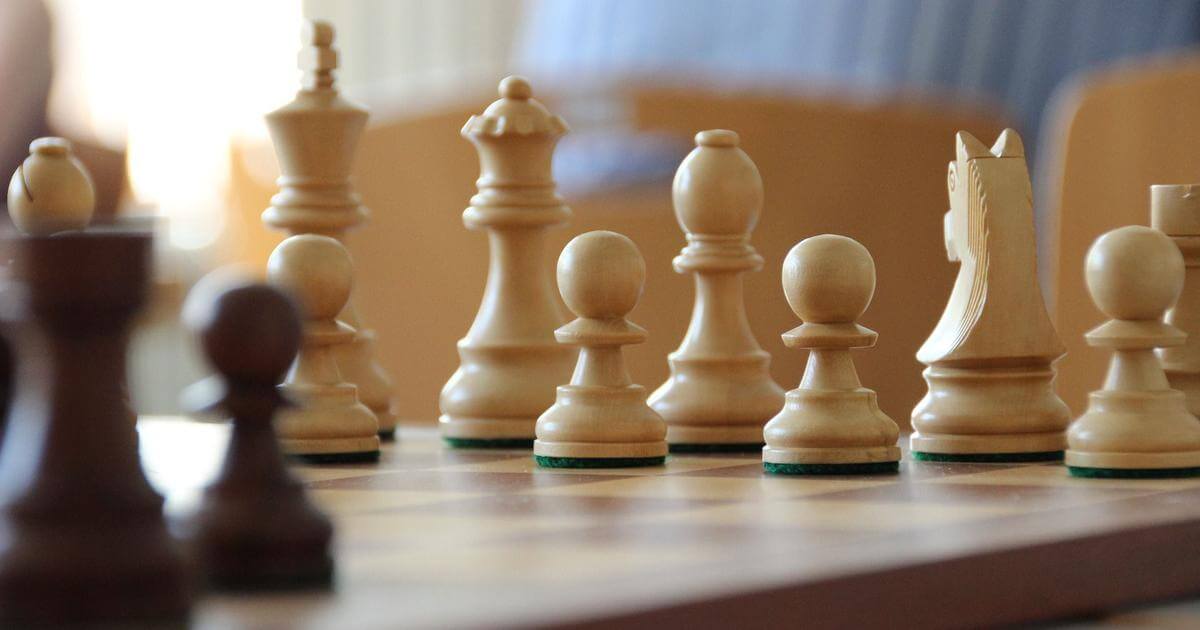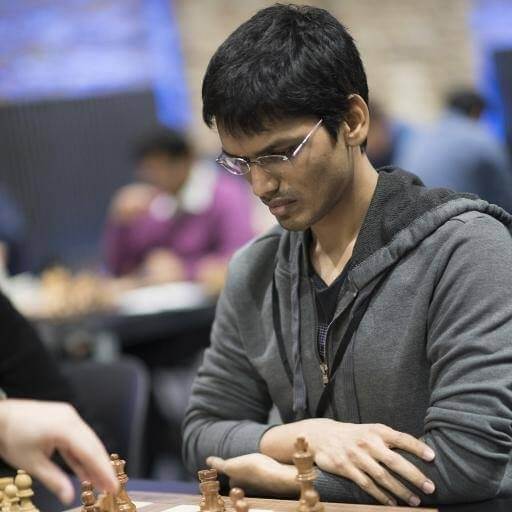Chess
Chess World Cup 2019: All you need to know - format, rules, Indian contingent
The seven-round knock-out event will begin on September 9 and last till October 4.

A 128-player single-elimination chess tournament, the Chess World Cup 2019 is scheduled to be held in Khanty-Mansiysk, Russia. The finalists of the tournament will earn qualification berth for the Candidates Tournament for the World Chess Championship next year. The seven-round knock out event will begin on September 9 and last till October 4. Also known as the FIDE World Cup, the governing body of the tournament is the World Chess Federation.
Format
The matches from the first round to the sixth round consist of two classical games with a time control of a total of 90 minutes per 40 moves plus 30 minutes for the rest of the game, including an increment of 30 seconds per move. The first round will see the participation of as many as 128 players. The finals and the match for the third place will comprise four classical games.
If the final score ends up as a draw after the classical games, rapid and, blitz tie breaks are required to be played the next day. There will be two games to be played with a time control of 25 minutes per game plus 10 seconds increment. In case the participants play out a draw, there will be two games with a time control of 10 minutes per game plus 10 seconds increment.
If the score still ends on a tie, two blitz games follow with a time-bound of 5 minutes plus 3 seconds increment. A sudden death game will then be played as a follow-up. The player who wins the drawing of lots will have the privilege of choosing the colour. While colour black has four minutes, colour white has a total of five minutes per game with an increment of 2 seconds per move starting from move 61. Colour white is required to win in order to advance to the next qualifying round.
The two contenders who finish at the top will directly qualify for the 2020 Candidates Tournament. There will be top two finishers other than Magnus Carlsen and Fabiano Caruana, because Carlsen as a World Champion does not compete in the Candidates Tournament, and Caruana had already earned a qualification place for the Candidates. Both, however, declined their invitations to the World Cup, so the qualifiers are simply the two finalists.
Schedule
Each of the first six rounds of the tournament will go on for three days. While there will be one day assigned for the two regular time limit games, a third day is kept aside for tie breaks, only if required. The final round of the tournament, however, will have four days of regular time limit games and a separate fifth day for tiebreaks.
- Round 1: September 10 – September 12
- Round 2: September 13 – September 15
- Round 3: September 16 – September 18
- Round 4: September 20 – September 22
- Round 5: September 23 – September 25
- Round 6: September 26 – September 28
- Final and play-off for third place: September 30 – October 4

Pairings
The pairings will be announced not later than thirty days before the beginning of the World Cup. The players are ranked according to the most recent FIDE Standard Rating List as per the moment once the pairings are announced. In case of an equality of two or more players, the higher-seeded will be the player who has the bigger number of games played during the period covered by the list. The order is, however, decided by the draw of lots if there is an equal number. The reigning World Champion is likely to be seeded number one.
The higher seeded player in the first game of match 2 will have the same colour as the highest-seeded player in the first game of match 1. Thereafter, with colours alternating through the list, a lower-ranked player will automatically assume the position of his eliminated opponent in the following round.
The games will be played using electronic clocks and boards only approved by FIDE. The time control for each game is 90 minutes for the first 40 moves, followed by 30 minutes for the rest of the game with an increment of 30 seconds per move starting from move 1. The two finalists of World Cup will qualify for the FIDE Candidates tournament scheduled for the first half of 2020.
Indian contingent
The FIDE World Cup will see the participation of a total of ten players from the Indian contingent.
Pentala Harikrishna
Pentala Harikrishna is a chess Grandmaster hailing from Guntur in Andhra Pradesh. He is the youngest grandmaster from the Indian chess landscape in 2001. He was the Commonwealth champion again in 2001, World Junior Champion in 2004, and Asian Individual Champion in the year 2011.
Vidit Gujrathi
Vidit earned the title of Grandmaster in the year 2013 at a tender age of 18 years. He became the fourth Indian who surpassed the rating of 2700 and is ranked 2718 as of January 2018. He is presently the third-highest rated chess player in the country, only after Vishwanath Anand and Pentala Harikrishna.
Baskaran Adhiban
Baskaran hogged the limelight when he won the 2008 World Championship and the 2009 World Championship in the Under-16 category. He also won the Asian Under-16 Championship tournament held in Tashkent in the year 2007.
Ganguly Surya Shekhar
A 2009 Asian champion and six-time Indian champion, Surya Shekhar became an International Master at a young age of 16. Grandmaster at 19, Surya belonged to the team of seconds that assisted Vishwanath Anand in winning the World Championship matches against Vladimir Kramnik, Veselin Topalov and Gelfand in 2008, 2010, and 2012 respectively.
SP Sethuraman
In 2009, Sethuraman achieved the three norms necessary to win a grandmaster title at the Parsvnath Open in New Delhi. He won the 2004 Asian Under-12 Championship in Singapore and the 2009 World Under-16 Championship in Antalya. He bagged bronze with the Indian team at the 41st Chess Olympiad and won the Indian National Premier Championship.
SL Narayan
At a tender age of 11, Kerala-based SL Narayan added a silver medal to his name at the Commonwealth Chess Championship in the Under-12 category. He also won gold at the same tournament two years later in the Under-16 category. He guided his way into the coveted list of Chess Grandmasters in 2015 after confirming a third place at the Philippine Open Championship.
Abhijeet Gupta
Abhijeet achieved norms for the Grandmasters title at the Andorra Open in the year 2006. In 2008, he won the World Junior Chess Championship in Turkey, thereby, becoming only the third Indian to win this championship after Vishwanath Anand and Pentala Harikrishna.
Karthikeyan Murali
Awarded the title of Grandmaster by FIDE in 2015, young Karthikeyan is a two-time national champion already at a young age. In December 2011, he won the Under 12 section of the World Youth Chess Championship held in Brazil. It was only two years later that he won the world U16 title in Al Ain.
Nihal Sarin
The 15-year-old Nihal Sarin is an Indian Chess Grandmaster with a FIDE rating of 2610. He is the third such youngest player in the history of chess to secure a rating of 2600, at the age of 14.
Aravindh Chithambaram
Aravindh won the Indian Under-19 Chess Championship at a young age of 12. The first breakthrough of his chess career came in the year 2013 when he won the Chennai Grandmaster International Open with a rating of 2728. It eventually earned him his first grandmaster norm. While he earned his International Master title in the year 2014, the grandmaster title was won by him only the next year.
The opening ceremony will be held at the Arts Center fro Gifted Children on September 9. The programme will include the participation of the FIDE officials at the chess club in Khanty-Mansiysk. Governed by the World Chess Federation, there was only one bid received for the combined FIDE World Cup and Olympiad events done by the Yugra Chess Federation.






